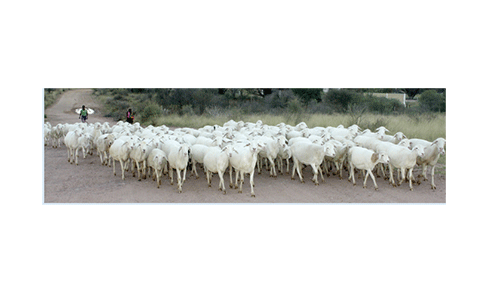Namibia’s agricultural exports received a boost last Thursday with the signing of a trade agreement between the agriculture ministry and the General Administration of Customs of the People’s Republic of China.
The agreement paves the way for Namibia to export mutton and chevon (goat meat) to the world’s most populous country.
The deal, which sets out rigorous inspection, quarantine and hygiene protocols, is expected to provide Namibian farmers with access to a lucrative market.
Agriculture minister Inge Zaamwani highlighted the importance of the agreement in fostering growth within Namibia’s agricultural sector.
“We are excited to provide our farmers with a real opportunity to scale up production and meet this growing demand. This will also contribute significantly to reducing the trade deficit between our two nations, positively impacting our economy,” she said. She called on Namibian meat producers, particularly those involved in mutton and chevon, to take advantage of the opportunity and adhere to the necessary protocols.
This is to ensure the quality of Namibian products meet the standards required by the new market.
The agreement comes at a time when Namibia is seeking to diversify its agricultural export base, which is primarily centred on beef.
Zaamwani believes that the deal with China, a growing consumer market, will play a crucial role in strengthening the country’s trade relations and boosting its agricultural exports.
Speaking at the signing ceremony, vice minister of the General Administration of Customs of China Wang Lingjun praised the agreement as a reflection of the deepening ties between Namibia and China.
“This agreement today is the culmination of our efforts. I am confident that our partnership will continue to thrive. By working together, we will bring more quality agricultural products from Namibia to the Chinese market,” he said.
Lingjun revealed that the deal lays the groundwork for future negotiations, with China currently in discussions about opening access to additional Namibian products, including deep-sea red crab and grapes.
This signals further potential for Namibian farmers to expand their market reach beyond traditional meat exports.
Namibia’s primary agricultural exports are currently focused on beef, with the European Union (EU), South Africa and Norway being major buyers.
The country exports to markets in the United States, the United Kingdom and Middle Eastern nations, such as Qatar and the United Arab Emirates.
The new agreement with China is expected to diversify Namibia’s agricultural export portfolio, enhancing its global competitiveness and contributing to sustainable economic growth.
At the same event, the Namibia Revenue Agency (NamRA) and China’s General Administration of Customs signed an agreement to enhance bilateral cooperation in customs operations.



